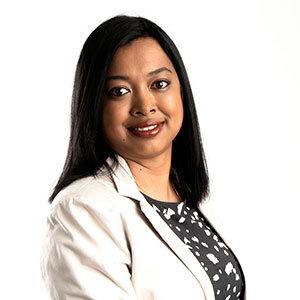SAICA urges local government to promote an ethical culture to attract and retain professionals

Johannesburg, 31 May 2023 – The South African Institute of Chartered Accountants (SAICA) urges government to fast track professionalisation of local government finance units.
This follows the Auditor-General (AG), Tsakani Maluleke’s presentation on the 2021-22 Local Government Audit Outcome to the Standing Committee of the Auditor-General (SCOAG) on Wednesday, 31 May which continues to reflect poor audit outcomes as a result of poor financial planning, inadequate financial controls, skills and capacity, governance and accountability.AG Maluleke noted that, “Local government has been characterised by dysfunctional municipalities, financial mismanagement, council and administrative instability, and crumbling municipal infrastructure. This leads to deteriorating standards of living and service delivery failures, resulting in service delivery protests. I firmly believe that service delivery improvements will be enabled by capable, accountable and citizen-centric municipal leadership delivering on their mandates to improve the lives of ordinary South Africans.”
The AG identified that there was a lack of proper management of available funds which exerted pressure on local government’s finance thereby reducing its service delivery potential. This is evidenced by local government incurring fruitless and wasteful expenditure amounting to R4,74 billion rands, as well as incurring an estimated financial loss of R5,19 billion rands through non-compliance and fraud as identified through the material irregularities process.
It was further noted that despite the salary cost of finance units amounting to R10,75 billion, municipalities still required the assistance of consultants to support them with financial reporting due to lack of skills and vacancies. Payments to consultants amounted to R1,6 bn (R1,36bn in 2020-21) which is 13% of the total financial reporting cost of R12,36 billion. Furthermore, Chief Financial Officer (CFO) vacancies was 22% whilst CFOs spent an average of 49 months in the position. The vacancies and instability in leadership within municipalities and finance units also resulted in inadequate financial controls, governance and accountability being implemented.
Natashia Soopal, Senior Executive for Ethics Standards and Public Sector at SAICA, says that local government finance units play a critical role in managing public funds, ensuring accountability, and optimising service delivery. “By cultivating a highly skilled workforce, local governments can improve audit outcomes, financial management practices, and service delivery. While professionalisation is crucial, an ethical environment is equally vital. It nurtures and sustains professionalism, ensuring that finance professionals act in the best interests of the public. An ethical environment promotes transparency, integrity, and accountability in financial decision-making processes”, says Soopal.
SAICA has noted that professionals are not attracted to local government as a result of the negative perception of the sector, due to a weak ethical culture resulting in intimidation threats and ethical dilemmas by professionals.
Soopal further emphasised that by fostering an ethical environment, local government can empower professionals to make decisions guided by principles rather than personal gain. “An ethical environment sets the stage for professionals to demonstrate their commitment to public service, gaining the trust and confidence of the community they serve”, Soopal said.
In order to create an ethical environment that supports professionals in local government, SAICA believes that several key steps should be taken including leadership commitment; supportive policies and procedures and ethical guidelines and training.
Professionals who consult in the public sector are also reminded to exercise professional competence and due care to ensure that they provide value and contribute to improved public finance management.
In conclusion, Soopal asserts that an ethical environment is the foundation upon which professionals in local government can thrive and is the silver bullet to attract and retain professionals thereby reducing dependence on consultants. “By supporting the professionalisation of the finance unit and fostering an ethical culture, local government can improve audit outcomes, enhance financial management practices, and deliver exceptional services to their communities. SAICA urges municipal managers and oversight committees including the municipal public accounts committees to recognise the critical importance of an ethical environment and provide the necessary resources and support to empower professionals to excel in their roles”.
About SAICA
The South African Institute of Chartered Accountants (SAICA), South Africa’s pre-eminent accountancy body, is widely recognised as one of the world’s leading accounting institutes. The Institute provides a wide range of support services to more than 50 000 members and associates who are chartered accountants (CAs[SA]), as well as associate general accountants (AGAs[SA]) and accounting technicians (ATs[SA]), who hold positions as CEOs, MDs, board directors, business owners, chief financial officers, auditors and leaders in every sphere of commerce and industry, and who play a significant role in the nation’s highly dynamic business sector and economic development.
Chartered Accountants are highly valued for their versatile skill set and creative lateral thinking, that's why all of the top 100 Global Brands employ Chartered Accountants.
SAICA is a member of Chartered Accountants Worldwide (CAW), a global family that connects over 1,8 million fellow Chartered Accountants and students in more than 190 countries. Together, we support, develop, and promote the role of Chartered Accountants as trusted business leaders, difference-makers, and advisers.
SAICA Media Contacts
Kgauhelo Dioka, ***@saica.co.za
Project Manager: Communications
SAICA Brand Division
Renette Human, ***@saica.co.za
Project Director: Communications
SAICA Brand Division